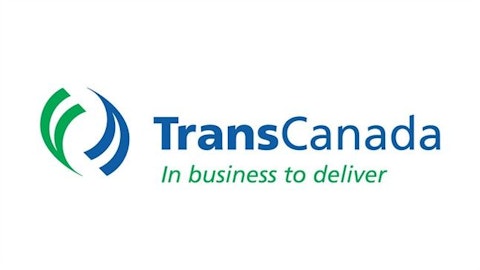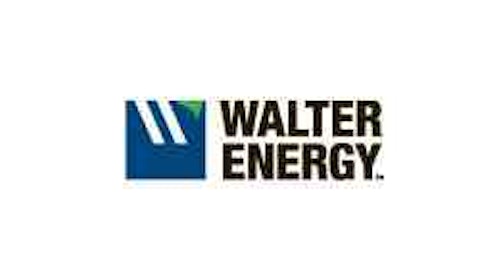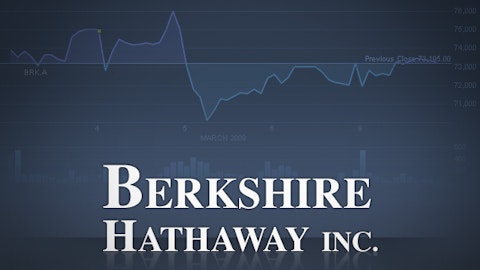 Last December, Markel Corporation (NYSE:MKL) shocked the market by announcing a $3.1 billion deal to acquire fellow insurer Alterra Capital.
Last December, Markel Corporation (NYSE:MKL) shocked the market by announcing a $3.1 billion deal to acquire fellow insurer Alterra Capital.The deal not only unsettled investors by employing a combination of cash and stock, but it was also significantly larger than the typically small acquisitions that President and CIO Tom Gayner pursues through his Markel Corporation (NYSE:MKL) Ventures subsidiary. The market immediately punished shares of Markel by driving them down as much as 10% that day.
Even so, I remained optimistic in spite of the drop after speculating that the deal might also benefit Markel Corporation (NYSE:MKL) by giving Gayner more flexibility in the ways he invests both the company’s insurance float and shareholder equity, which is a similar perk Warren Buffett enjoys as he invests for the much larger Berkshire Hathaway Inc. (NYSE:BRK.B).
But that’s not all …
As fellow Fool Matt Koppenheffer also pointed out at the time (while noting that Markel Corporation (NYSE:MKL) is often called a “baby-Berkshire”), Alterra’s reinsurance operations also diversify Markel’s insurance segment while making it more Berkshire-esque than ever, especially considering Berkshire also operates its own massive General Reinsurance subsidiary.
Then, perhaps predictably, Alterra Shareholders followed up in February by overwhelmingly voting to approve the merger of the two companies, paving the way for them to receive 0.04315 Markel Corporation (NYSE:MKL) shares plus $10 cash for each share of Alterra they owned, as stipulated in the terms of the buy.
Finally, on May 1, Markel announced it had officially completed the acquisition, noting at the time that the combined company could boast around $23 billion in total assets, with around $6 billion in shareholder equity.
Even so, all the synergies and advantages in the world don’t mean much for investors if a stock is overpriced. So how does the new Markel stack up?
Strength in numbers
Thanks to a recent SEC filing from Markel that provides specific details on the pro forma combined statements of Markel and Alterra, investors now have plenty of new information they can use to put a proper value on the company.
So what does the filing reveal?
First, at the end of the most recent quarter, the two companies actually had combined assets of just over $23.5 billion, with shareholder equity (or book value) listed at $6.5 billion.
Next, if you scroll down a few pages, you’ll see the number of diluted “preliminary pro forma adjusted weighted average common shares outstanding” (try to say that 10 times fast) stood at 14,092,000 as of this past March 31.
Multiply that by Tuesday’s closing price of roughly $537 per share, and that gives us a current market capitalization for the combined companies of around $7.57 billion.
Here’s why Markel looks undervalued
With the shareholder equity I mentioned, that means the combined money-making machine that is Markel and Alterra is currently trading at just over 1.16 times book value — not too shabby for a well-respected financial holding company like Markel.
To put that in perspective, remember that Buffett told the world last year he’d be willing to buy back shares of Berkshire Hathaway if the price to book ratio fell below 1.2. As it stands, and even though many investors still consider it cheap at today’s levels, Berkshire Hathaway stock currently trades around 1.46 times book value.
Of course, Markel is still much more of a pure insurer than Berkshire Hathaway, whose five largest non-insurance businesses boasted aggregate earnings of $10.1 billion last year. In addition, Berkshire continues to spend billions every year on smaller bolt-on acquisitions, which are melded into its existing operating units.
Still, though total sales from Markel’s own group of non-insurance businesses clocked in at just $489.4 million in 2012, that did represent a 67% increase over the prior year as Markel continued to pursue its own group of comparatively tiny acquisitions.
Foolish takeaway
But, really, Markel’s small size — even after merging with Alterra — remains one of its greatest assets. This becomes especially apparent when we remember Buffett hasn’t been shy about calling out Berkshire’s enormousness as one of the primary reasons he won’t be able to duplicate his incredible past rates of return.
Long story short, at only 1.16 times book value, Markel currently looks like a fantastic bargain, and I believe that patient shareholders who buy now stand to be rewarded handsomely over the long run.
The article Together, Do Markel and Alterra Look Cheap? originally appeared on Fool.com and is written by Steve Symington.
Fool contributor Steve Symington owns shares of Markel. The Motley Fool recommends and owns shares of Berkshire Hathaway and Markel.
Copyright © 1995 – 2013 The Motley Fool, LLC. All rights reserved. The Motley Fool has a disclosure policy.





